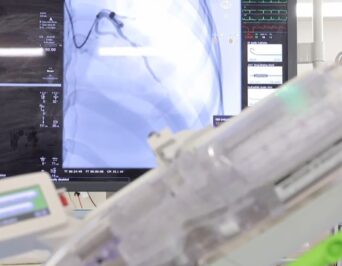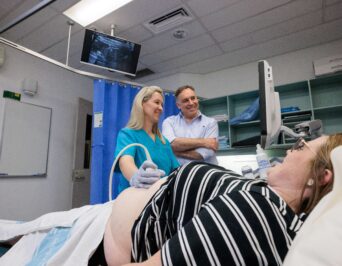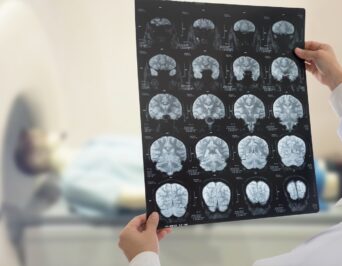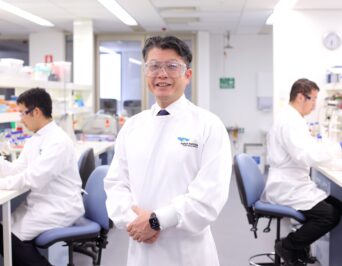
Research lead: Prof Valsamma Eapen
Research area: Childhood Development: early identification of Autism and developmental delays
Team: BestSTART-South West, Ingham Institute
What was the health problem that led you to carry out your research?
Challenges in continuity of care between maternity and early childhood services can lead to children with developmental issues such as autism, speech delay, and ADHD not being identified early. Around 63,448 Australian children start school with developmental vulnerabilities, potentially leading to disability, chronic disease, reduced economic opportunities and intergenerational adversity. Kids from priority populations, including Indigenous, socio-economically disadvantaged and culturally and linguistically diverse (CALD) communities face up to double the rate of not being school-ready. The COVID-19 pandemic exacerbated inequities in access to child developmental checks, leading to missed opportunities for early intervention. Late intervention costs $15.2 billion in education, health and welfare annually. Effective, early identification and supports are needed to address child developmental issues, family mental health and psychosocial needs.
Describe the research achievement and its impact.
The Strengths-based Tiered Accessible Resources and Supports (STARS for Kids) program detects developmental difficulties early, facilitating health with wrap-around social care. The Watch Me Grow Electronic platform (WMG-E) is a digital (weblink) form of the developmental checks recommended in the Blue Book (given to parents at the birth of the baby). WMG-E empowers parents to complete the checks digitally and it also sends automated reminders for ongoing checks at the recommended ages until start of school. WMG-E engages parents at opportunistic contacts such as immunisation or other health and child and family care visits, providing real-time information at the point of care. Successfully piloted in hard-to-reach groups such as CALD and Indigenous communities in NSW, WMG-E is being scaled up across QLD and WA to help detect child developmental needs early before things become complex.
Results showed 86% parental engagement with developmental checks at 12 months in the intervention group compared to 16% in the control group. It also showed that rates of accessing early intervention doubled from 30% to 60% through Integrated Child and Family Hubs, which offer ‘one stop shop’ services and supports.
How was the work unique or pioneering?
The Australian Health Research Alliance recommended the WMG-E program in 2021 as one of the 10 most impactful programs. The community benefits from earlier identification of developmental delays, empowering parents to seek support through its strength-based approach. This research uniquely uses opportunistic contacts for childhood developmental checks and monitors their trajectory for early intervention (e.g. speech and language support). In addition to UNSW, SWSLHD, and Karitane as operational partners, our collaborators include Uniting, First Steps Count, Mission Australia and many government and university partners (e.g. QLD Health, NSW Health, WA Ramsay Health, Western Sydney University, UTS, Sydney University, UQ, UWA, Melbourne University, Newcastle University).
What is the broader implication of the research?
Providing the right care, at the right place and time, addresses service fragmentation and navigational challenges, particularly for priority populations. The developmental checks in the WMG-E program are translated into 38 languages and are being implemented globally and in particular used for training and capacity-building in several developing countries. This research offers a ‘post-pandemic reset’ that alleviates current family distress around access to early identification and supports for child developmental needs. Ultimately, it improves long-term outcomes for children.




